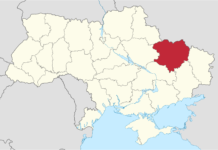Earlier today, a significant escalation occurred in the ongoing tensions between Israel and Hezbollah, as Israel conducted an airstrike in southern Lebanon, resulting in the death of a senior Hezbollah commander, Wissam al-Tawil. This event marks a critical point in the conflict, intensifying the existing fears of a broader regional war.
Wissam al-Tawil, also known as “Jawad”, served as the deputy head of a unit within Hezbollah’s elite Radwan force. The strike, reportedly executed by an Israeli drone around 10:15 AM local time, targeted al-Tawil’s vehicle on the road to al-Dabshah in the town of Khirbet Selm, in the Bint Jbeil district. This incident led to the deaths of al-Tawil and another fighter, marking a significant blow to Hezbollah.
The airstrike’s timing is notably critical, as it occurs amid heightened tensions following the killing of Salah al-Arouri, the deputy leader of Hamas, in Beirut last week, also attributed to an Israeli airstrike. Hezbollah had vowed that al-Arouri’s assassination “will not go unpunished,” and had claimed responsibility for an attack on an Israeli military base on Saturday.
According to reports from Sky News, al-Tawil was one of the most senior Hezbollah commanders killed in the recent hostilities. His death is considered a major setback for Hezbollah, a group backed by Iran, and is expected to have significant implications for the organization’s operational capabilities.
The recent developments have raised concerns about the potential for the conflict in Gaza to spill over into Lebanon and other regions. Hezbollah has lost over 130 fighters in Israeli shelling on southern Lebanon, and al-Tawil’s killing further exacerbates the situation. This event comes as US Secretary of State Antony Blinken is visiting the Middle East, attempting to mitigate what he describes as a “moment of profound tension” in the region.
In response to these events, Hezbollah’s leadership has issued stern warnings to Israel. Last week, Hezbollah leader Hassan Nasrallah cautioned Israel against initiating a full-scale war on Lebanon, stating that such an action would lead to regret. Furthermore, the United Nations peacekeeping mission in Lebanon has expressed concerns about the potential “devastating consequences” of an escalation along the Israeli-Lebanese border.
The international community, including the European Union’s foreign policy chief, Josep Borrell, has echoed these sentiments, warning that a regional conflict would result in no winners. Lebanese Foreign Minister Abdallah Bou Habib has emphasized Lebanon’s readiness to implement UN Security Council Resolution 1701, which calls for Hezbollah forces not to deploy south of the Litani River and for the Lebanese army to control all of Lebanon, up to the border with Israel.
As tensions rise, the world watches closely, hoping for a de-escalation of hostilities to prevent a wider conflict in an already volatile region.
Image is licensed under the Creative Commons Attribution 4.0 International license and was created by Mehrnews.com.










